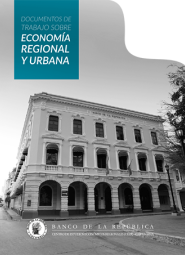Do Single‐Sex Classes Affect Achievement? A Study in a Coeducational University
La serie Borradores de Economía es una publicación de la Subgerencia de Estudios Económicos del Banco de la República. Los trabajos son de carácter provisional, las opiniones y posibles errores son responsabilidad exclusiva del autor y sus contenidos no comprometen al Banco de la República ni a su Junta Directiva.
We examine the effect of single‐sex classes on the pass rates, grades, and course choices of students in a coeducational university. We randomly assign students to all‐female, all‐male, and coed classes and, therefore, get around the selection issues present in other studies on single‐sex education. We find that one hour a week of single‐sex education benefits females: females are 7.5% more likely to pass their first year courses and score 10% higher in their required second year classes than their peers attending coeducational classes. We find no effect of single‐sex education on the subsequent probability that a female will take technical classes and there is no effect of single‐sex education for males. Furthermore we are able to examine potential mechanisms and indirect effects of single‐sex education. We find that the effects of single‐sex education do not appear to be driven by a tracking mechanism and that there are indirect effects on class attendance and completion of optional assignments for females. However, the indirect effects cannot explain much of the effect of single-sex education for females.
Borradores de Economia is a working paper series published by the Economics Studies Unit of the Central Bank of Colombia –Banco de la República. The views expressed in this document do not reflect the opinion of the Banco de la República or its Board of Governors. All errors and omissions are the sole responsability of the authors.


















































